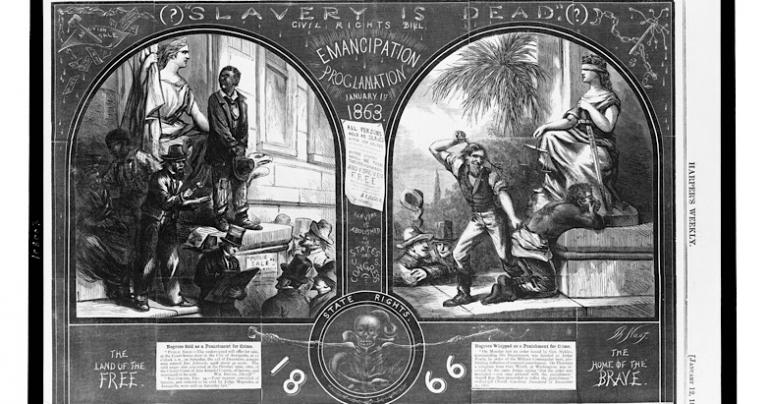 “Winning is it’s own justification,” say many about to commit a monstrous act.
“Winning is it’s own justification,” say many about to commit a monstrous act.
For a Christian the justice of a society is measure by the treatment of the weakest. Do the poor get equal justice or are the rich favored? Are the physically weak in greater danger than the strong?
No society, not one made up of Christians certainly, ever will pass the test of justice perfectly. The world to come will bring perfect justice, but until that day (Maranatha!) Christians must aspire to something greater. The Theotokos Mary describe the ever-present move of the Holy Spirit this way:
For he that is mighty hath done to me great things; and holy is his name. 50 And his mercy is on them that fear him from generation to generation. 51 He hath shewed strength with his arm; he hath scattered the proud in the imagination of their hearts. 52 He hath put down the mighty from their seats, and exalted them of low degree. 53 He hath filled the hungry with good things; and the rich he hath sent empty away.
That’s Gospel.
Participating in this movement is necessary, because against justice there is always the Satanic spirit that worships power and success: the rule of the strong. The reason there must always be some skepticism about power and checks and balances to the powerful is that no system can be trusted to do justice. The beautiful image of the double-headed eagle in the Christian Roman Empire symbolized the check of power between Patriarch on Emperor: two heads, one body. The story of Christendom down to the work of Christian apologist John Locke, whose First and Second Treatise on Government, provide the Christian and philosophical basis for our republic is one of looking for ways to block the abuse of power by the powerful.
Lord Jesus Christ, son of God, have mercy on me a sinner.
We all fail in this school for souls, but imagine not even trying. I suspect that in every dying civilization, there rises a those who just boldly state a lust for power and reject any check on aspirations. A great civilization, take ancient Athens, will always fail justice in ways they do not understand. A great leader, a Pericles, may justify injustice, fooling himself and other citizens, but there is hope so long as the desire for justice remains paramount. Injustice misunderstood as justice might be rectified, checked, or mitigated, but injustice as a goal is doom.
Socrates, a friend of justice, understood the dangers when he heard the pet educator of the establishment, Thrasymachus, make the following claim about justice:
Then here is my answer: justice is simply the interest of the stronger. Well, why don’t you praise me? But of course you won’t.**
Note the characteristics of the sophist: impatience with dialogue, mockery, and a placating of the powerful. Socrates and the Blessed Virgin are on one side of civilization and Thrasymachus on the other.
Thrasymachus stands at Armageddon and battles for the Devil.
The dying society has lost confidence, partly due to success. Wealth and power have given time to reflect on what has been one and the truth is not always beautiful. There is a tendency to coverup, to obfuscate, but that cannot last. The truth is there: we meant well, but often did badly. We proclaimed liberty and held African-Americans as slaves.
There are two easy tyrannical roads. One is to assume we get “it” and to throw away all the good that was done and assume we can bring on paradise. This is the path of revolution and it ends in tyranny. The other destructive path is to justify all that was done, because we did it. We were the strong and the strong have a right to do as they will. Justifications are for the weak.
This is antithetical to Christianity, but before World Wars the Germans in particular thought Thrasymachus might be their prophet. God save us.
What is to be done?
Socrates endured, refusing to justify evils done, or to pretend that he had all the answers. He was pious toward the past and critical. He loved justice more than power, because in Socrates knew (see Republic X) that in High Heaven power and justice would en up perfectly aligned. That’s pragmatic, but Socrates and Jesus also embraced justice even if it could not win.
That’s an ethic of love.
———————————————-
*I begin an informal summer reading of Republic using Scott/Sterling (a new translation for me). Part 1. Part 2. Part 3. Part 4. Part 5. Part 6. Part 7. Part 8. Part 9. Part 10. Part 11. Part 12. Part 13. Part 14. Part 15. Part 16. Part 17. Part 18. Part 19. Part 20. Part 21. Part 22. Part 23. Part 24. Part 25.












